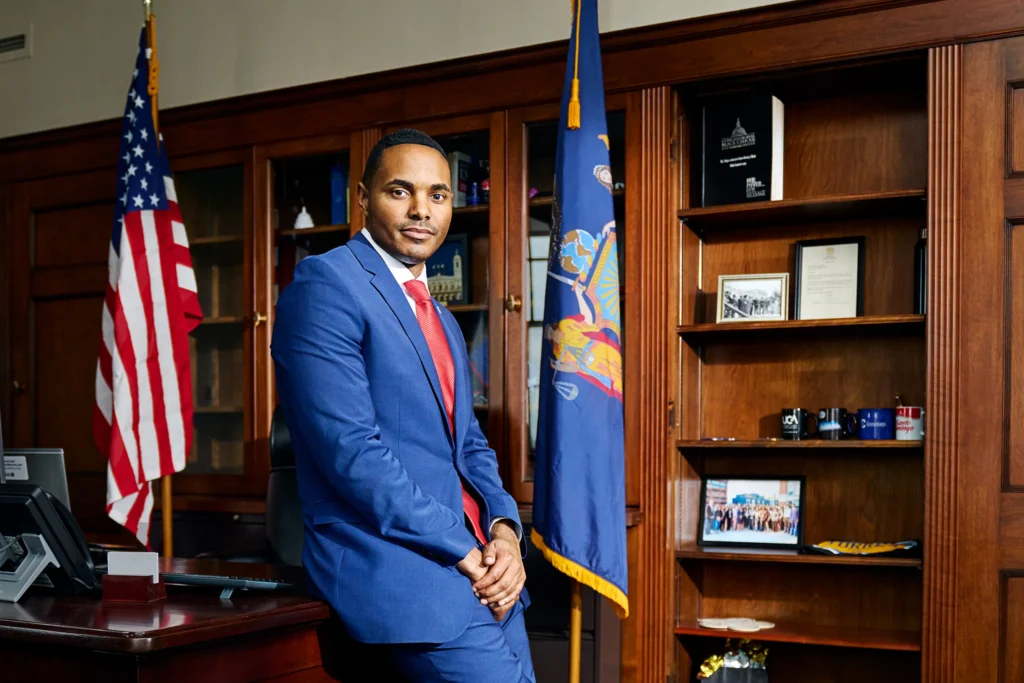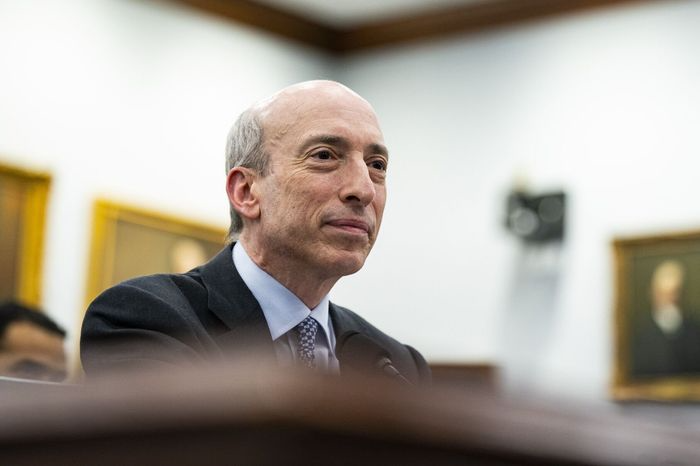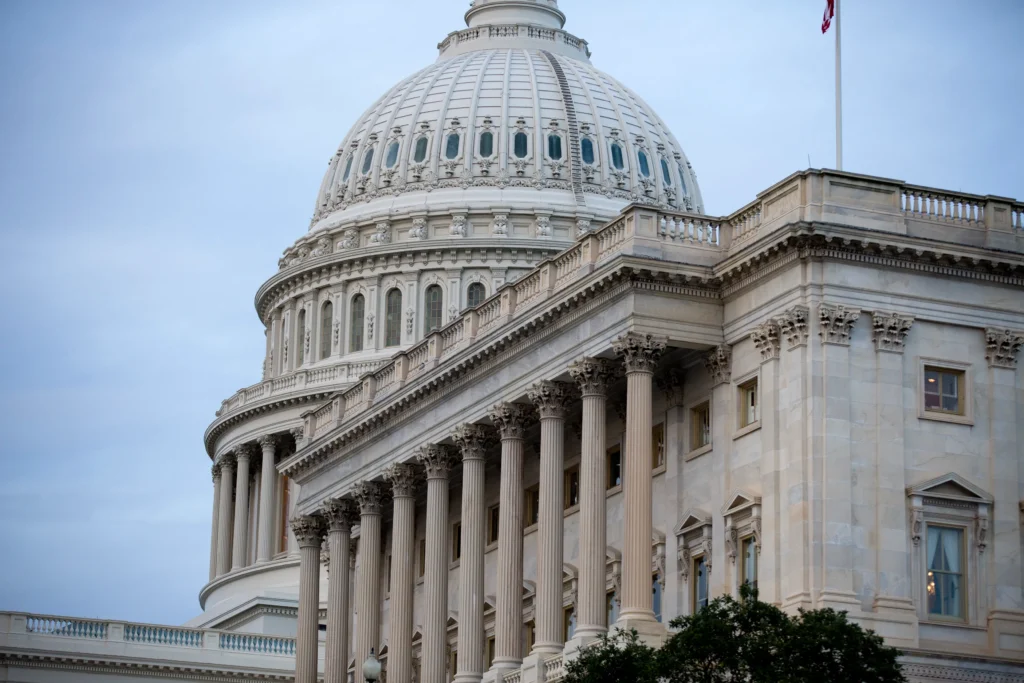Ritchie Torres Takes On SEC: Advocates For New Crypto Laws And Bipartisan Support

Key Points:
- Democratic Representative Ritchie Torres criticizes SEC’s crypto regulations, calls it a “war” on the industry.
- He backs FIT Act for clearer crypto asset jurisdiction.
- Stablecoin bill lacks bipartisan deal, but Torres remains hopeful.
Democratic Representative Ritchie Torres expressed his criticism of the U.S. Securities and Exchange Commission (SEC) and voiced his support for new legislation pertaining to the cryptocurrency industry.

Speaking on the Unchained podcast with host Laura Shin, Torres accused the SEC, led by Chairman Gary Gensler, of employing a “regulation by enforcement” approach towards crypto innovators. He argued that the actions taken by the SEC under Gensler’s leadership seemed arbitrary and capricious, asserting that the agency had declared war on the entire crypto industry instead of solely focusing on bad actors.

In alignment with his concerns about the SEC’s regulatory approach, Torres voiced his support for the recently advanced market structure bill, known as the Financial Innovation and Technology (FIT) for the 21st Century Act. According to Torres, the FIT Act aims to clarify which crypto assets fall under the jurisdiction of the SEC. The bill proposes that the SEC would have authority over a crypto asset until it can be demonstrated that the asset is sufficiently decentralized. Once proven decentralized, the asset would then be categorized as a commodity and would be governed by the Commodity Futures Trading Commission (CFTC).
On July 26, the House Financial Services Committee voted in favor of the FIT Act, with Torres being among the lawmakers supporting the bill.
Additionally, Torres threw his weight behind another bill intended to regulate stablecoins and ensure that these assets are fully backed by reserves. He referred to stablecoins as “the clearest usage case of crypto” and expressed his approval for giving stablecoin issuers the option to comply with either federal regulations or state regulations, such as New York’s BitLicense.
However, it was reported on July 27 that the stablecoin bill failed to reach a bipartisan agreement, despite Torres’ endorsement.
Undeterred by the setback, Torres remained optimistic about the future of both bills. He revealed that the market structure bill received six Democratic votes, and he expected even more support for the stablecoin bill. Nonetheless, he acknowledged that the bill’s progress might be hindered if it fails to gain the support of Rep. Maxine Waters, the ranking member.

Responding to claims that Democratic party members were largely opposed to cryptocurrency development, Torres highlighted that recent cryptocurrency legislation had enjoyed bipartisan backing. He also noted that younger lawmakers appeared to be more open to crypto, while Republicans tended to embrace the crypto industry, possibly due to the party’s pro-business stance.
Previously, Torres had penned a letter to Gensler, urging the agency to reassess its regulatory approach to cryptocurrencies. This letter was prompted by a legal setback for the SEC in a case involving Ripple, where a federal judge ruled that certain digital-asset transactions did not fall within the agency’s regulatory scope. Torres used this ruling as evidence to argue that cryptocurrencies themselves were not securities but could be included in investment contracts qualifying as securities.
DISCLAIMER: The information on this website is provided as general market commentary and does not constitute investment advice. We encourage you to do your own research before investing.
Read more...
Coincu News
Read More

PayPal Says SEC Ending Inquiry Into PYUSD Stablecoin Without Any Enforcement Action
Ritchie Torres Takes On SEC: Advocates For New Crypto Laws And Bipartisan Support

Key Points:
- Democratic Representative Ritchie Torres criticizes SEC’s crypto regulations, calls it a “war” on the industry.
- He backs FIT Act for clearer crypto asset jurisdiction.
- Stablecoin bill lacks bipartisan deal, but Torres remains hopeful.
Democratic Representative Ritchie Torres expressed his criticism of the U.S. Securities and Exchange Commission (SEC) and voiced his support for new legislation pertaining to the cryptocurrency industry.

Speaking on the Unchained podcast with host Laura Shin, Torres accused the SEC, led by Chairman Gary Gensler, of employing a “regulation by enforcement” approach towards crypto innovators. He argued that the actions taken by the SEC under Gensler’s leadership seemed arbitrary and capricious, asserting that the agency had declared war on the entire crypto industry instead of solely focusing on bad actors.

In alignment with his concerns about the SEC’s regulatory approach, Torres voiced his support for the recently advanced market structure bill, known as the Financial Innovation and Technology (FIT) for the 21st Century Act. According to Torres, the FIT Act aims to clarify which crypto assets fall under the jurisdiction of the SEC. The bill proposes that the SEC would have authority over a crypto asset until it can be demonstrated that the asset is sufficiently decentralized. Once proven decentralized, the asset would then be categorized as a commodity and would be governed by the Commodity Futures Trading Commission (CFTC).
On July 26, the House Financial Services Committee voted in favor of the FIT Act, with Torres being among the lawmakers supporting the bill.
Additionally, Torres threw his weight behind another bill intended to regulate stablecoins and ensure that these assets are fully backed by reserves. He referred to stablecoins as “the clearest usage case of crypto” and expressed his approval for giving stablecoin issuers the option to comply with either federal regulations or state regulations, such as New York’s BitLicense.
However, it was reported on July 27 that the stablecoin bill failed to reach a bipartisan agreement, despite Torres’ endorsement.
Undeterred by the setback, Torres remained optimistic about the future of both bills. He revealed that the market structure bill received six Democratic votes, and he expected even more support for the stablecoin bill. Nonetheless, he acknowledged that the bill’s progress might be hindered if it fails to gain the support of Rep. Maxine Waters, the ranking member.

Responding to claims that Democratic party members were largely opposed to cryptocurrency development, Torres highlighted that recent cryptocurrency legislation had enjoyed bipartisan backing. He also noted that younger lawmakers appeared to be more open to crypto, while Republicans tended to embrace the crypto industry, possibly due to the party’s pro-business stance.
Previously, Torres had penned a letter to Gensler, urging the agency to reassess its regulatory approach to cryptocurrencies. This letter was prompted by a legal setback for the SEC in a case involving Ripple, where a federal judge ruled that certain digital-asset transactions did not fall within the agency’s regulatory scope. Torres used this ruling as evidence to argue that cryptocurrencies themselves were not securities but could be included in investment contracts qualifying as securities.
DISCLAIMER: The information on this website is provided as general market commentary and does not constitute investment advice. We encourage you to do your own research before investing.
Read more...
Coincu News
Read More

